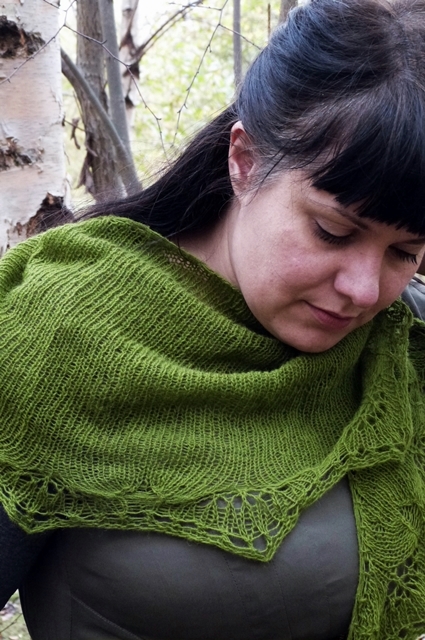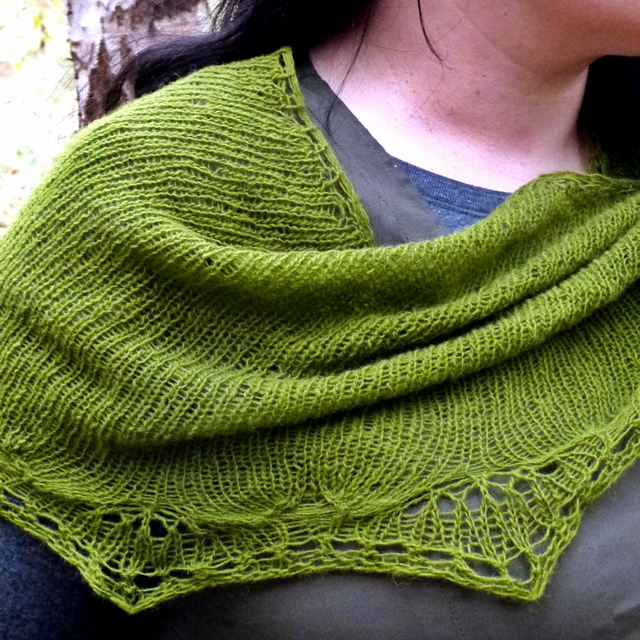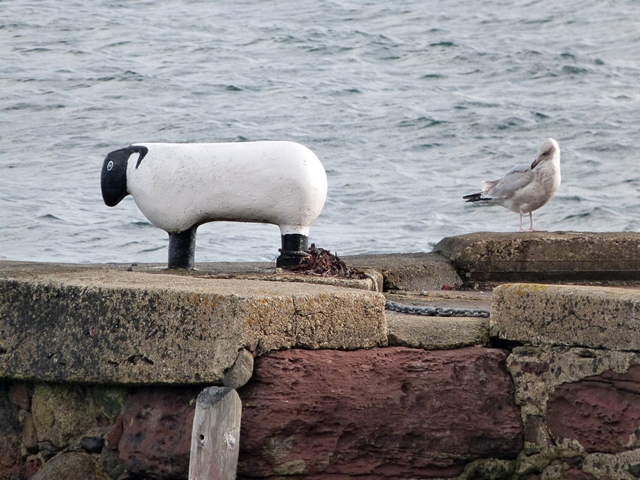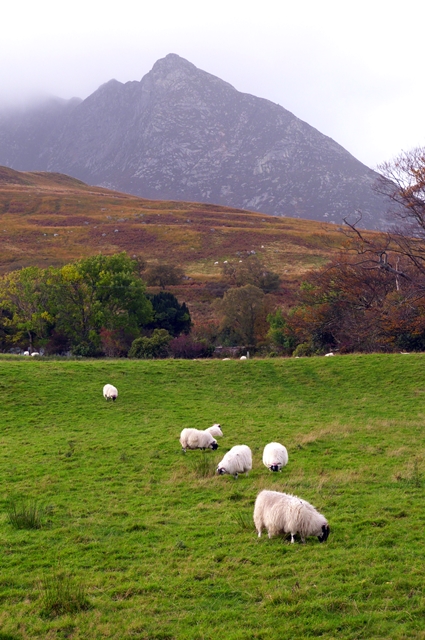 I have been involved with various charity knitting projects in my time. Quite apart from knitting for various projects, I helped out with the Garterstitch100 project which made blankets for women's shelters and I have also been a coordinator for a premature baby knitting project. I have seen both sides of charity knitting and it's been interesting. Recently I came across some thoughtful - and thought-provoking - blog posts on charity knitting.
Ben wrote about wanting to know the facts behind the stories in the media. He found out that a popular crafting-for-charity story had a religious agenda. He concluded:
I have been involved with various charity knitting projects in my time. Quite apart from knitting for various projects, I helped out with the Garterstitch100 project which made blankets for women's shelters and I have also been a coordinator for a premature baby knitting project. I have seen both sides of charity knitting and it's been interesting. Recently I came across some thoughtful - and thought-provoking - blog posts on charity knitting.
Ben wrote about wanting to know the facts behind the stories in the media. He found out that a popular crafting-for-charity story had a religious agenda. He concluded:
Crafters need to interrogate the traditional “charity” narratives their disciplines are attached to. They need to be honest about the motivations behind their charity-craft, and make sure that the charities they support really align with their values. They also need to accept that charity-craft, as a model, is usually more about the desires of the giver than it is about the needs of the receiver.
Rachel wondered why the knitters keep getting asked:
When was the last time you saw a charity campaign asking people with hobbies such as carpentry, embroidery, sculpting or painting, to create a throwaway object in order to ‘raise awareness’? I doubt that you have and I doubt that you will. So why do knitters get targeted? Do the marketing and PR departments of charities think that knitters have nothing better to do with their skills, time and resources than make small hats for drinks bottles? Why do these campaigns always fall to the knitters and why do we keep entertaining them?
I urge you to read both these blog posts. Not only are they interesting, but they also deal with a complex topic in ways that deserve your attention.
I support charity knitting because I recognise that a) people feel the need to give back and show care for their fellow human beings. b) knitting (and other types of crafting) is a way of showing this care and love, and c) it can genuinely transform some people's lives and show compassion and hope where often there is nothing to be found. Yet - I have mixed emotions about charity knitting and I'll be trying to unpack them below.
Sometimes charity knitting projects live up to their name - caritas means "the love for all" or "to care for your neighbour" - and I have personally heard moving stories of a woman escaping domestic abuse snuggling up with a handmade blanket in a shelter, a guy who taught himself to knit preemie hats because his little daughter was fighting for her life in hospital, and knitters getting together across continents to make a blanket for cancer survivors. Powerful stories where knitting becomes synonymous with care, love, hope and friendship. Powerful stories where a knitter's simple act of caring transformed lives.

Other times I look at a campaign like Innocent Drinks' The Big Knit which has knitters make tiny hats for smoothie bottles. Did you know that each smoothie sold equates to just 25p donated to Age UK? Did you know that Innocent Drinks is 90% owned by Coca-Cola? If you work out the maths of cost of yarn + time spent on knitting = each hat actually generates less money than if you had donated the cost of yarn to the charity - and if you figure the ownership by Coca-Cola into the equation, it becomes clear that this is more a branding exercise than an act of charity. Your time, your money, and your wonderful kindness can be better spent elsewhere - a direct donation to Age UK would be better and you can source a charity local to you who will appreciate your knitting efforts.
When I was co-ordinating and collecting premature baby knitting projects, I was struck by the beautiful things that people made and donated, but we also saw people handing in downright filthy knitted items for the premature baby unit: things that reeked of cigarette smoke or were covered with unexplained stains. We had to throw these items away because we did not have the facilities (or money!) to wash all these clothes before we brought them to the unit. I actually spoke to one "repeat offender" who got very angry when I explained why I could not accept filthy items. "Well, you should be happy for just getting something," she replied when I explained that dirty clothes would make very tiny, very ill human beings even more sick. I think back to what Ben was pointing out: sometimes charity knitting is more about the maker than the receiver. It saddened and shocked me - but I have since come across that attitude in other charity contexts. "Poor or ill people should be grateful for whatever they get" (not much caritas in that!).
I wish people wanting to knit for charity would spend time researching before making decisions about what to support. Does a heart-warming campaign actually support a charity whose aims are less than heart-warming? Will your time & effort result in changing people's lives or just boost the bottom-line of one of the world's largest companies (and would you be better off just donating money to the cause)? Is what you are making appropriate for the charity? Does the charity you support actually want hand-knitted items? Are you using appropriate materials or are you "just using up stash"? Do your research and do it carefully and with thought.
I'd love to read your thoughts and comments - I'm particularly interested in hearing about lesser-known charity projects that you are able to recommend to people wanting to make a difference.
 I was looking through an old photo folder when I came across this swatch I did for what would eventually become the Proserpine shawl. The swatch was knitted in an unreleased Old Maiden Aunt shade and I love how the camera picks up unexpected shades in the soft khaki green. Patterns have an interesting path they take from initial swatch to finished object. Proserpine was always going to be knitted in a rich, jewel-like shade, but for a short period of time it only existed partially in my head and partially in this soft green shade. Colours play such a part in how we see designs - once I knitted Proserpine in Caerthan's rich teal, it became a different, separate thing to what it was at this early stage. Part of me still wonders what it would look like in the OMA colourway. If I had but world enough and time..
I was looking through an old photo folder when I came across this swatch I did for what would eventually become the Proserpine shawl. The swatch was knitted in an unreleased Old Maiden Aunt shade and I love how the camera picks up unexpected shades in the soft khaki green. Patterns have an interesting path they take from initial swatch to finished object. Proserpine was always going to be knitted in a rich, jewel-like shade, but for a short period of time it only existed partially in my head and partially in this soft green shade. Colours play such a part in how we see designs - once I knitted Proserpine in Caerthan's rich teal, it became a different, separate thing to what it was at this early stage. Part of me still wonders what it would look like in the OMA colourway. If I had but world enough and time..

 Lately I have had my head buried in spreadsheets, charts, style sheets and gauge swatches. All work and no play makes for a dull Karie. Sure, there were some bright spots (like
Lately I have had my head buried in spreadsheets, charts, style sheets and gauge swatches. All work and no play makes for a dull Karie. Sure, there were some bright spots (like  Another highlight was teaching workshops. I really love teaching - that moment a tricky technique is mastered by someone or I can see someone getting it .. well, you cannot beat that feeling. One of my workshops took place at Dundee's
Another highlight was teaching workshops. I really love teaching - that moment a tricky technique is mastered by someone or I can see someone getting it .. well, you cannot beat that feeling. One of my workshops took place at Dundee's 




 Tomorrow I am releasing the last Doggerland pattern (more on the actual pattern when it's released!) and it is a bit emotional.
I first started working on Doggerland in 2011. The first few sketches were rough outlines of motifs, but soon I began sketching all sorts of things: shells, driftwood, coastal outlines.. then I started reading about Mesolithic archaeology, I met with archaeologists, I delved into
Tomorrow I am releasing the last Doggerland pattern (more on the actual pattern when it's released!) and it is a bit emotional.
I first started working on Doggerland in 2011. The first few sketches were rough outlines of motifs, but soon I began sketching all sorts of things: shells, driftwood, coastal outlines.. then I started reading about Mesolithic archaeology, I met with archaeologists, I delved into  I have been involved with various charity knitting projects in my time. Quite apart from knitting for various projects, I helped out with the Garterstitch100 project which made blankets for women's shelters and I have also been a coordinator for a premature baby knitting project. I have seen both sides of charity knitting and it's been interesting. Recently I came across some thoughtful - and thought-provoking - blog posts on charity knitting.
Ben wrote about
I have been involved with various charity knitting projects in my time. Quite apart from knitting for various projects, I helped out with the Garterstitch100 project which made blankets for women's shelters and I have also been a coordinator for a premature baby knitting project. I have seen both sides of charity knitting and it's been interesting. Recently I came across some thoughtful - and thought-provoking - blog posts on charity knitting.
Ben wrote about 



 We walked towards Coire na Ciche (The Devil's Punchbowl) with the slopes of Goatfell on our left and the peaks of Cir Mhor and Caisteal Abhail in front of us. I was worried about how my injured left knee would hold up (especially as the path was not as gentle as we had imagined) - but although I was in pain, I did not have to resort to the heavy-duty pain killers and my knee only caused me to stumble occasionally.
We walked towards Coire na Ciche (The Devil's Punchbowl) with the slopes of Goatfell on our left and the peaks of Cir Mhor and Caisteal Abhail in front of us. I was worried about how my injured left knee would hold up (especially as the path was not as gentle as we had imagined) - but although I was in pain, I did not have to resort to the heavy-duty pain killers and my knee only caused me to stumble occasionally.



